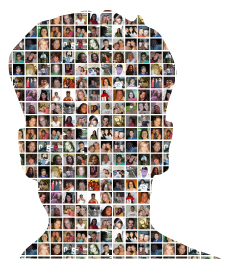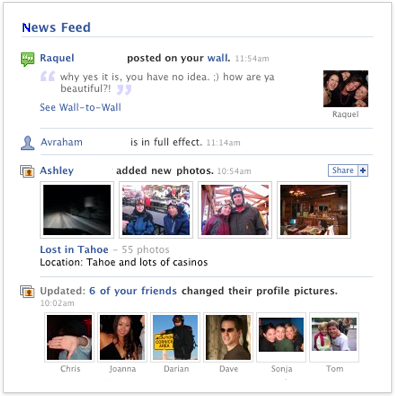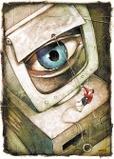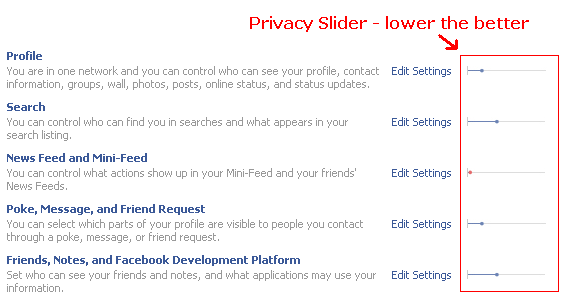Courses/Computer Science/CPSC 203/CPSC 203 2007Fall L04/CPSC 203 2007Fall L04 TermProjects/Facebook: The Unknown Face
Contents
Group
Group Name MALT CRAKK!
Group Members Reagan Craig, Amber Araki, Mallory Kowalchuk, Thomas Ho, Lauren Rooney
Initial Project Statement
For our project we will be exploring the dangerous reality of net stalking. We will examine the elements on the facebook website that make it easy for net stalkers to access personal information.
Background Information & Argument
What is Facebook?
Facebook was created in February 2004 by Mark Zuckerburg, a former Harvard student. Since then it has become the second most popular social networking site on the internet. Facebook is available to anyone who has a valid email address and is willing to indulge in the addiction. Today, Facebook has over 8 million users in the US alone, while having expanded to 7 other countries.
Facebook is mainly made up of networks which can be based on a school, company, city or region. No matter your age or location any person in the world can create a personal and unique facebook account. Since it's beginning, facebook has evolved dramatically. Facebook users are able to share more information than ever before. When it comes to Facebook, the possibilites are endless. Users are able to add any type of applications, send gifts, make photo albums, upload videos, send messages, change their status, be notified of birthdays, join groups, make events...the list could go on forever!
The Main Reasons Why People Join Facebook:
1. Connect with Classmates, Co-workers, Relatives and Friends from all over the world.
2. Upload Photos
3. Share Links and Videos
4. Learn More about the People they meet.
5. Be able to express who they are in their own personal internet blog.
Fun Facts About Facebook:
- The site got it's name from the paper facebooks depicting members of the University community that US colleges and schools give to new students, faculty and staff.
- Facebook has over 300 employees
- 31 million people are active users
- There are more than 100,000 new registrations every day
- Peter Thiel, a board member of Facebook, approximated that Facebook’s internal value is around $8 billion based on their projected revenues of $1 billion by 2015
As you can see, Facebook seems to be the newest craze for keeping in touch with friends and family. Yes, we know, you are probably one of the millions of people out there who have your own facebook account. How do we know? It is not only easy for your friends and relatives to contact you, but also for anyone to have access to your personal profile including net stalkers.
What is Net Stalking?
A not so recent phenomenon that is quickly attracting new global awareness, net stalking, or “cyber stalking,” can be defined as someone using the Internet, or any other forms of online communication, to harass people in an unwanted manner.
Net stalkers target victims using a wide variety of techniques – from online discussion forums, blogs, and chat rooms, to message boards, “Walls,” and e-mail. Net stalkers have now taken to prowl through the more publicized cyberspace zones, with the creation of online social network communities such as MySpace, Yahoo, Gmail, Nexopia, YouTube, and yes, Facebook. These critters may seem harmless at first – hostile or obscene e-mail messages; spamming (were the net stalker sends a multitude of junk e-mail to his/her victim) – but might progress to: harassment, via chat rooms or “Wall” postings on Facebook; “flaming”, or the act of posting deliberately hostile messages through public message boards; unsolicited emails; identity theft: and even viruses.
Although not entirely dangerous in itself, the persistence of a net stalker can potentially lead to the typical offline stalking that is more commonly known about. Offline stalking generally encompasses harassing or threatening behaviour that an individual engages in repeatedly, such as pursuing the victim, appearing at a victim’s home or place of business, making harassing phone calls, leaving written messages or “gifts”, or vandalizing a victim’s property. According to a bulletin drafted by the Canadian Resource Centre for Victims of Crime: cyber stalking “usually occurs with women, who are stalked by men, or children who are stalked by adult predators.” The bulletin also stated that the average victim profile that net stalker usually preys upon is one who is usually “inexperienced” when it comes to the Internet.
The Internet and its applications have become highly used tools of communication, with millions of people having access to them and the plethora of information that they provide and assist in. With so much information and unidentifiable boundaries, the thought of policing the Internet is almost unfeasible. Without tangible laws to govern its use, pedophiles and net stalkers typically roam free. While aggravating or threatening behaviour might fall short of illegal stalking, net stalking may be a prelude to physical stalking, violence, or harassment, and the thought of protecting yourself should be treated more seriously and taken with awareness and vigilance.
The Relationship Between Facebook & Net Stalking
With the creation of the World Wide Web, there has been much advancement in our communication abilities across the globe. Facebook in particular helps to lessen the geographic gap between countries, states, and continents. However, there are always downfalls to advancements, especially when it comes to the internet. Facebook creates a whole new way for stalkers to follow an individual’s day to day activities and future events to be attended. The features that Facebook has, enable stalkers to almost follow an individual’s every move if they are constantly updating their profile.
Some of these dangerous features include:
Updating one's status every 24hrs - Where are you? What are you doing? Where are you going? How are you feeling? Thoughts etc.
Networks - Where do you live or go to school? What network are you part of?
Mini-Feed - Almost every action you make on the website is displayed in the mini-feed.
Information/Contact - One's profile can contain anything from a home phone number, to a room number in an apartment or personal website.
Education/Work - People are able to view your work places current and past, along with what elementary, college, or university ever attended.
The Wall - People are able to view all conversations you have with friends/family members.
Friends - Who are you friends with? Where do they live?
Groups - What groups are you part of? Examples: clubs, alumni, work, school, just for fun, residence groups, etc.
Event Invitations - When an individual RSVP's to an event and confirms they are attending it will be displayed with an icon in their mini-feed. Anyone can then click on the event where it displays all the detailed event information i.e. date, time, place, etc.
The main disadvantage Facebook creates for a regular user, is that a stalker can view their full profile if they are part of the same network. A stalker could join a network such as Kelowna, B.C., find an individual who has a public profile who regularly updates it and view their pictures, conversations with friends on the wall, and virtually get to know the person without even meeting them or having a conversation with them. If your basic profile information is filled out a stalker would know where you work, go to school, your birthday, your phone number and whether you are single or not. Moreover, once a person has access to an individuals profile they are then able to view that individual’s friends. Facebook brings stalking to a whole new level. A person could create multiple accounts and join multiple networks by simply having a few different email addresses. Facebook creates many dangers, especially for unsuspecting students who use it as a form of popularity in high school. One is able to create a completely fake profile and make an innocent student in high school think that this ‘supposed person’ is enrolled in their school. Even though it is a very convenient way to ‘keep in touch’ with friends and relatives, unless one is careful they could have a stalker following their every move.
Signs of A Facebook Stalker
How do you know if someone is a facebook stalker? An easy answer is to simply look at yourself. How often are you on facebook searching for friends? Looking through all your friends pictures and then their friends picutres and looking at their friends picures and so on and so on, hoping to get to see someone you met the other night at the club. "NO Way! That's not me, I just check my message board to see what my friends posted," signed, Facebook addict in denial. Really?! Do you check your message board every morning? Poke someone everytime your on? Well these are just small signs of a facebook stalker. Perhaps you, yourself are not quite this extreme, however, there are a great deal of individuals who spend countless hours on facebook constantly searching for someone, anyone.
If there are so many people out there on facebook, and any number of them could be your friends or they could be a stalker waiting to strike, how can you tell who is innocently just saying "HI" and those who are interested in more then just "HI...(what color are your eyes?)..............." Well, there are a few good indications of a potential stalker.
Stalkers can be broken down into five subtypes:
1. A rejected person - someone who may be responding to an unwelcome seperation or break-up and uses stalking as a way of maintaining some form of contact with the victim
2. The intimacy seeker - someone who knows little if anything about his/her victim but believes that the victim will someday love or care for them
3. The incompetent would-be suitor - someone given their ignorance or indifference to the usual courting rituals, they use methods that are, at best, counterproductive and, at worst, terrifying. The stalking provides an approximation of finding a partner
4. A resentful person - someone who feels insulted or injured by actions they feel are aimed at them and seek vindication. The stalking is the act of vengeance
5. The predator - someone who seeks to fulfill sexual gratification and control
Here are some warning signs that someone may be stalking you (Any one of these signs may help to identify what type of stalker they are):
- When someone bombards you with messages, emails, gifts or in facebooks case a "poke", he/she could be a stalker
- Someone with whom you speak to once or twice, yet they seem to be online to chat with you no matter what time you go online (since stalking behaviour can last for long periods of time, even years)
- It can be someone you know that expects you to spend a lot of your time with him/her chatting online and needing to know your whereabouts
- They attempt to isolate you from friends by badgering you the moment you tell he/she you are up set with your friends
- Is quick to offer you assistance at a moments notice (to imitate that they have been your close friend for many years)
- They constantly ask if they can be signed up as friends on your facebook even though you are still quiet unfamiliar with them (this allows them full access to you facebook page)
- They are extremely kind or exhibit excessive niceness early on during conversations
- Someone who uses guilt to manipulate you or your feelings so that you feel the need to rely on him/her for support
- A previous boyfriend/girlfriend or lover who refuses to take "no" for an answer
- Becomes angry or jealous that you are spending time chatting with other people online
These are the major red flags you should be aware of when chatting online, however, there are many less noticeable clues to someones behaviour that require you to be very aware of who you speak with on facebook and who you allow on your friends list.
Protecting Yourself
Social networking sites, such as, facebook present certain risks for their members. By providing detailed information about yourself, such as, your personal contact information and communicating with a world of strangers, you run the risk of encountering dangerous and untrustworthy people. It is not uncommon for stalkers, scammers, hackers, and online criminals to use social networking sites to garner personal information about potential victims.
Facebook's privacy settings are geared around "networks" and "friends." When you sign up with facebook, the default privacy settings allow access to your profile for everyone in all your networks and all your friends. In other words, if you join a network, of 54,000 people your profile is now viewable by over 54,000 people and joining additional networks opens your profile too even more people.
Unlike, some other social networking sites, facebook has provided some options to protect its online users, but it's up to them to make use of them. If you choose to use facebook, you should select the privacy settings right away (click the "Privacy" link after logging into facebook). Facebook's privacy options give the user control over nearly every aspect of their profile. Here are some recommendations:
- Restrict your profile to "only my friends" rather than "all my networks and all my friends" (the default option). This is one of the single, most effective ways to protect your privacy on facebook. Think carefully about who you allow to become your facebook "friends."
- Turn your birthday option off. By default, your birthday is displayed to anyone who can see your profile. Your birth date is used for all manner of legal transactions and is a key piece of private data. (This option is found by clicking "Edit" to alter your profile; it is not in the "Privacy" settings.)
- Consider restricting other people's ability to search for you on facebook. By default, anyone can search for you, regardless if you’re in the same network or not. In fact, facebook publishes your profile data to search engines like Google and Yahoo, therefore, it is recommend disabling this feature in your privacy options.
- Consider setting up a "limited profile" and specifying people who will see that profile. You can exclude nearly all parts of your profile when setting up a limited profile. Unfortunately, you can only assign this limited profile to people you specify.
- Prevent people from using facebook Platform applications to obtain information about you by selecting the option, "Do not share any information about me through the facebook API." If you've restricted your profile to "only my friends," the risk of abuse through facebook Platform applications is reduced.
If you read the Terms of Service regarding the content you put on your page, facebook is allowed to sell/share your information with other companies without asking you for further permission while you’re a member of their site. Therefore, making good use of the privacy settings is just as important as having common sense about what you should and should not post on your profile. A good rule of thumb is “don’t post anything to facebook you would not be comfortable putting on a billboard.” It is important to keep in mind that just because you are cautious about whom you share your information with does not guarantee that your friends will share the same discretion.
Facebook has recently taken a step to increase their safety and security agreeing to implement new protections on its service to better respond to complaints of abuse, harassment, or inappropriate content, and will also open its operations to an independent compliance examiner for the next two years. This all comes as part of a settlement with New York State Attorney General Andrew Cuomo.
Under the new terms, facebook will respond to any complaint about online harassment and abuse, or the presence of nudity or pornography on the site within 24 hours. Facebook users just need to contact abuse@facebook.com. Facebook has also agreed to have its compliance monitored by an Independent Safety and Security Examiner (ISSE), who will be approved by the New York Attorney General.
Just because cyber-stalking doesn't involve physical contact, does not mean it isn't a serious issue. Always report online harassment to keep everyone safe. For more information about cyber-stalking, go to http://www.cyberangles.org or http://www.safetyed.org.
References
Amber
- http://www.usatoday.com/tech/news/techpolicy/2007-09-26-facebook_N.htm
- http://www.youtube.com/results?search_query=facebook+stalker- Video, Enrique Iglesias' song Hero
- http://developers.facebook.com/
- http://site.ebrary.com.ezproxy.lib.ucalgary.ca/lib/ucalgary/Doc?id=10067241
- http://site.ebrary.com.ezproxy.lib.ucalgary.ca/lib/ucalgary/Doc?id=5005973
- http://site.ebrary.com.ezproxy.lib.ucalgary.ca/lib/ucalgary/Doc?id=10069058
- http://badgerherald.com/artsetc/2007/10/11/stalking_not_all_for.php
- http://www.ft.com/cms/s/0/47dbf3f6-6e64-11dc-b818-0000779fd2ac.html
- http://www.fox16.com/news/local/story.aspx?content_id=8ad4325d-1ba5-40bb-b082-6170b5909926&rss=315
- http://blog.washingtonpost.com/fasterforward/2007/10/facebook_followup.html
- http://www.facebook.com/whatsnew.php
Mallory
- http://observer.case.edu/Archives/Volume_38/Issue_26/Story_898/
- http://media.www.kentnewsnet.com/media/storage/paper867/news/2005/10/14/News/Facebook.Obsession.A.Scary.Thought-1518328.shtml
- http://www.guardianangels.org/pdf/878.pdf
- http://press.creighton.edu/012706/news9.html
- http://www.robinraskin.com/blog/your-digital-kids/a-realistic-look-at-facebook-and-myspace/
- http://internetducttape.com/2007/03/08/how-to-use-facebook-without-losing-your-job-over-it/
- http://gigaom.com/2007/09/05/facebook-open-to-public-search/
- http://oceanpark.livejournal.com/98694.html
- http://www.saferdates.co.uk/CyberStalkingAndHarassment.html
- http://media.www.thebatt.com/media/storage/paper657/news/2006/01/24/News/Is.Facebook.An.Open.Invitation.For.Stalkers-1502689.shtml
- http://mybroadband.co.za/blogs/2007/08/07/interesting-facebook-facts/
- http://www.facebook.com/about.php
Lauren
- http://www-tech.mit.edu/V125/N53/TWACG0553.html
- http://www.ctv.ca/servlet/Artichttp://news.digitaltrends.com/news/story/14519/facebook_to_roll_out_more_member_protectionleNews/story/CTVNews/20070409/facebook_feature_070409/20070411?hub=Specials&pr=0
- http://www.cavalierdaily.com/CVArticle.asp?ID=25218&pid=1368
- http://media.www.mainecampus.com/media/storage/paper322/news/2007/09/27/Style/Facebook.Stalking.At.The.Tips.Of.Your.Fingers-2997775.shtml
- http://media.www.louisvillecardinal.com/media/storage/paper964/news/2007/01/16/Features/Facebook.Stalking.Athletes.Beware-2632862.shtml
- http://www.undertheradar.co.nz/utr/tt/NID/183/TITTY.utr
- http://mashable.com/2006/11/15/stalkers-rejoice-facebook-updates-news-feed/
- http://media.www.dailyorange.com/media/storage/paper522/news/2006/09/12/Opinion/Facebook.Use.Blurs.Definition.Of.Stalker.Behavior-2267079.shtml
- http://www.nethics.umd.edu/resources/facebook.html
- http://www.studentaffairs.com/vcs/2006entries/EasternIllinoisUniversity_clarke_entry.ppt
- http://www.sophos.com/security/best-practice/facebook.html
- http://www.schneier.com/blog/archives/2006/09/facebook_and_da.html
- http://www.helpdesk.ilstu.edu/kb/index.phtml?kbid=1319
- http://news.digitaltrends.com/news/story/14519/facebook_to_roll_out_more_member_protection
Reagan
- http://www.collegebound.net/content/article/stalking-on-college-campuses/555/
- http://www.cbc.ca/story/canada/national/2006/03/16/cyberstalk060316.html
- http://cybertip.ca/en/cybertip/safer_inet_tips
- http://www.facebook.com/help.php?tab=safety
- http://www.latimes.com/technology/la-fi-facebook25sep25,0,3329755.story?coll=la-home-center
- http://www.cnn.com/2007/US/10/16/facebook.safety/index.html
- http://mashable.com/2007/09/24/facebook-2/
- http://www.sophos.com/security/topic/facebook.html
- http://www.nytimes.com/2007/09/25/nyregion/25facebook.html?ex=1348372800&en=cf567944cf8218b5&ei=5088&partner=rssnyt&emc=rss
- http://students.sunyocc.edu/campuslife.aspx?title=420&id=5736
Tom
- http://www.mysocialnetwork.net/blog/481/y8/2006/11/facebook_a_little_stalkerish.html
- http://www.purdue.edu/securepurdue/docs/fb_handout_facts.pdf
- http://www.winona.edu/winonan/S2006/3-8-06/YoumightbeaFacebookstalkerif....htm
- http://www.associatedcontent.com/article/362740/stopping_internet_stalkers.html?page=1
- http://www.knightspage.com/11_2/11_2_PrancerStalkernet.htm
- http://www.bullyonline.org/related/stalking.htm
- http://www.iowastatedaily.com/media/storage/paper818/news/2005/01/14/News/Facebook.Frenzy-1102758.shtml
- http://www.abc.net.au/news/stories/2007/09/29/2046948.htm
- http://media.www.bcheights.com/media/storage/paper144/news/2004/04/27/Features/Column.Facebook.A.Stalkers.Dream-671350.shtml
- http://michellemalkin.com/2007/02/22/facebook-nightmare-college-republican-targeted-by-stalker-speaks-out/





